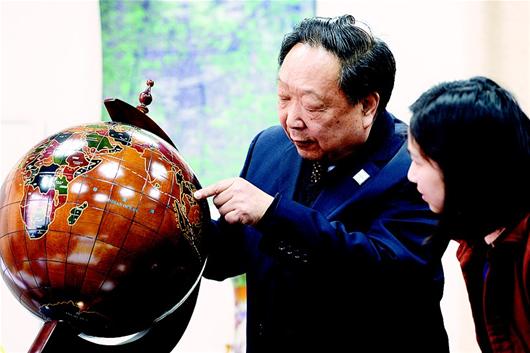Li Deren, a professor at Wuhan University and a member of the Chinese Academy of Engineering (CAE) and the Chinese Academy of Science (CAS), along with experts in the field of surveying and mapping, submitted a CAE report to the government arguing for the commercializing high-resolution remote sensing satellite industry in China. It contended that China should adopt a market-driven approach to the satellite industry during its economic transition.
With the aerospace industry developing rapidly, China has launched 16 Beidou Satellites. “Now the Beidou Satellites of China have better functions than the Global Positioning Satellites (GPS) of the US in the Asia-Pacific region. GPS is unidirectional and can only be used for navigation and positioning instead of communication. In contrast, the Beidou Satellite is bidirectional. It can not only serve for navigation and positioning, but also provide short-message communication service.” Li Deren explained.
Currently, Professor Li’s research team is devoted to constructing the Remote Sensing Industrial Research Institute in Wuhan Optics Valley, the main task of which is to launch the first commercialized satellite of China. So far WHU has partnered with the China Aerospace Science and Technology Corporation, the 508 Corporation, the Red East Corporation and the Siwei Corporation to achieve that end. By the end of 2015, the alliance plans to launch a satellite which will likely be named “Luojia I” or “Wuhan I”. According to Li Deren, his team is specifically responsible for developing the hardware and software to receive and process data. The satellite will be used to support the construction of a Smart City, including Smart Transportation and Smart City Management. In addition, it can be applied to precision agriculture and other uses as well.
Li said, “Different from India, America and Japan, China fails to purchase the best components of satellites, but we believe that we can compensate the errors of these components through better application of theory and arithmetic, thus covering the shortage of hardware by the use of advanced software. In this way, we can make those China-made satellites stand among the world’s best.”
(Edited by Sijia HU & Yoni)
